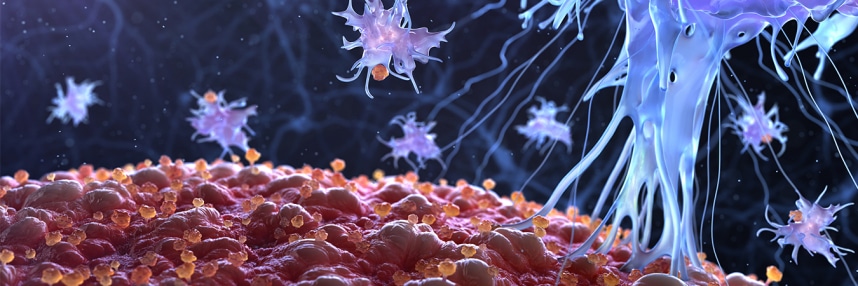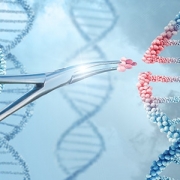Cancer vs the immune system
This week, we explore the ways cancer cells can evade our bodies’ defences and how we can fight back
New research shows that cancer cells are more resistant to being destroyed by the immune system than was previously thought.
The findings show the importance of understanding the specific mutations present in a patient’s cancer to find the most effective treatment.
Tumour suppressor genes
Tumour suppressor genes are genes that regulate cell growth and prevent cancerous cells from spreading. These same genes are associated with cancer development when they are absent or have variants that cause them to function differently.
For a long time, it was thought that that these genes were mostly related to regulating cell growth and division, but new research suggests that a larger proportion of these genes are involved in evading the immune system than previously expected.
The research, led by Gregor Mendel Professor of Genetics and Medicine Dr Stephen Elledge at Harvard Medical School, looked at 7,500 genes associated with cancer. The study used CRISPR genome editing to make cells that lacked functional versions of each gene in turn.
Researchers looked at which cells grew into tumours in mice, identifying over 100 genes that prevented the immune system from detecting the tumours.
“The shock was that these genes are all about getting around the immune system, as opposed to simply saying ‘grow, grow, grow!’” said Dr Elledge.
Checkpoint inhibitors
Although this discovery is surprising, the ability of tumours to evade the immune system is well documented. One example is where cancer cells produce proteins that deactivate immune cells that would otherwise attack the tumour. A class of cancer drugs called checkpoint inhibitors take advantage of this by blocking these proteins.
Checkpoint inhibitors such as pembrolizumab for lung cancer are already being used in the NHS, and for patients with the right types of tumour, they can offer excellent results. They only work in some types of cancer, however and can have serious side effects, so they need to be carefully matched to appropriate patients.
Dr Elledge’s team plan to look in detail at the mechanisms by which the genes they have identified evade the immune system. They hope to find shared strategies or pathways that could serve as targets for new therapies.
–








